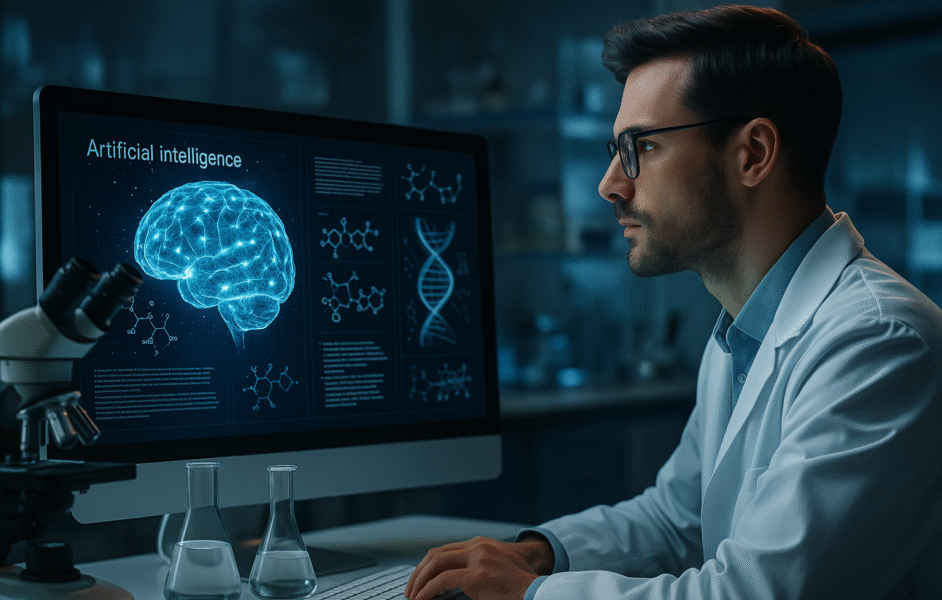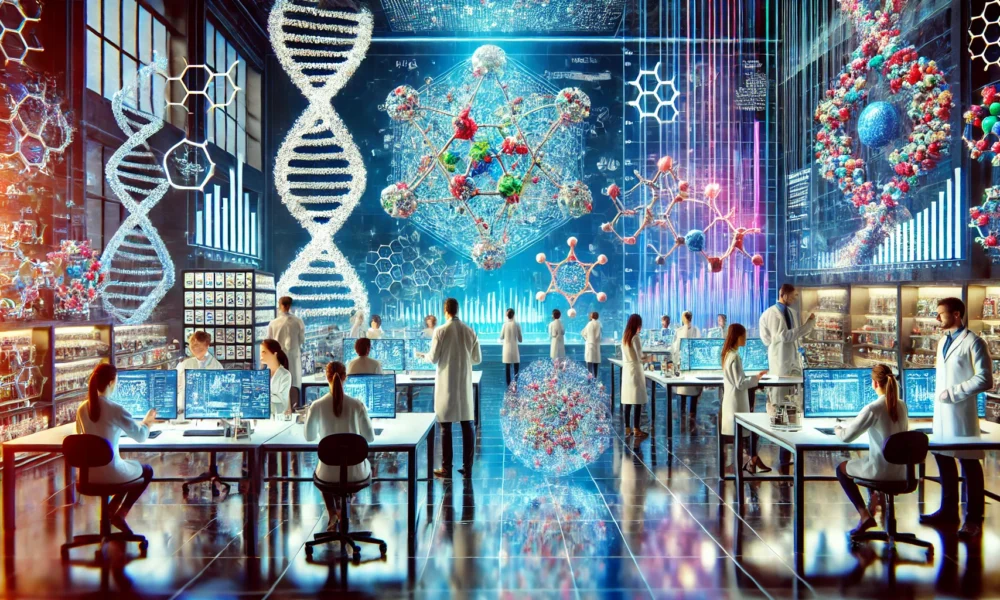Transforming Scientific Research: Accelerating Discovery with Microsoft Discovery
Scientific research has long been an arduous and methodical endeavor, with scientists dedicating countless years to testing theories and conducting experiments. They sift through thousands of papers and synthesize various strands of knowledge. While this meticulous approach has served its purpose, the pressing challenges of today—such as climate change and the emergence of diseases—demand quicker solutions. Microsoft is championing the use of artificial intelligence as a powerful ally in this mission. At Build 2025, Microsoft unveiled Microsoft Discovery, a cutting-edge platform leveraging AI agents to expedite research and development. This article explores how Microsoft Discovery operates and the vital role these AI agents play in transforming research processes.
Overcoming Challenges in Modern Scientific Research
Traditional research and development have grappled with challenges for decades. The sheer volume of scientific knowledge, dispersed across numerous papers, databases, and repositories, complicates the synthesis of ideas from different fields. Research involves multiple stages—reviewing literature, formulating hypotheses, designing experiments, analyzing data, and refining outcomes—each requiring distinct skills and tools. This fragmentation hinders consistent progress. Moreover, research is inherently iterative, reliant on evidence, peer discourse, and continual refinement, leading to significant time lags from concept to application. This gap between the pace of scientific advancement and the urgency for solutions to issues like climate change and disease underscores the need for a more rapid innovation approach than traditional research can provide.
Introducing Microsoft Discovery: Revolutionizing R&D with AI Agents
Microsoft Discovery represents a revolutionary enterprise platform designed specifically for scientific research. It empowers AI agents to collaborate with human researchers in generating hypotheses, conducting analyses, and performing experiments. Built on Azure, this platform harnesses the computational power necessary for advanced simulations and data analysis.
The platform tackles research challenges through three transformative features. First, it employs graph-based knowledge reasoning to interlink information across diverse domains and publications. Second, it utilizes specialized AI agents focusing on particular research tasks, ensuring seamless coordination among them. Finally, it establishes an iterative learning cycle that refines research strategies based on findings and discoveries.
What sets Microsoft Discovery apart from other AI tools is its comprehensive support for the entire research process. Rather than assisting with isolated tasks, the platform guides scientists from the inception of an idea to the final outcomes, significantly cutting down the time required for scientific breakthroughs.
Graph-Based Knowledge Engine: Bridging Information Gaps
Conventional search systems typically identify documents through keyword matching. While this method can be useful, it often overlooks the deeper interconnections within scientific knowledge. Microsoft Discovery addresses this issue through its graph-based knowledge engine, which maps relationships between data from both internal and external scientific sources. This system comprehends conflicting theories, varying experimental results, and assumptions across disciplines, providing a broader context rather than merely locating relevant papers.
Moreover, the knowledge engine elucidates its reasoning process. By tracking sources and logical pathways, researchers can verify the AI’s conclusions. This transparency is crucial, as scientists need not only answers, but also an understanding of how those conclusions were reached. For example, when searching for new battery materials, the system can integrate knowledge from metallurgy, chemistry, and physics, even identifying contradictions or gaps in information to inspire novel ideas.
The Essential Role of AI Agents in Microsoft Discovery
In the context of Microsoft Discovery, an AI agent is a form of artificial intelligence capable of executing tasks autonomously. Unlike traditional AI systems that merely assist humans by following commands, agents can make decisions, plan actions, and independently solve problems. They function as intelligent assistants, capable of taking the initiative and learning from data to manage intricate tasks with minimal human intervention.
Rather than relying on a single large AI system, Microsoft Discovery incorporates multiple specialized agents, each targeting specific research tasks and working in unison. This approach mirrors the dynamics of human research teams, where experts with varied skills collaborate and share insights, but with the added advantage of AI agents’ ability to continuously process vast datasets and maintain precise coordination.
The platform empowers researchers to create custom agents tailored to their specific needs, allowing them to articulate requirements in natural language without any programming expertise. Additionally, the agents can recommend which tools or models to employ and propose collaborative strategies with other agents.
Microsoft Copilot serves a pivotal role in this ecosystem, acting as a scientific AI assistant that orchestrates the specialized agents based on the prompts provided by researchers. Copilot comprehends the tools, models, and knowledge bases available on the platform and can establish comprehensive workflows for the entire discovery process.
Real-World Applications of Microsoft Discovery
The true efficacy of any research platform is gauged by its real-world impact. Microsoft researchers recently identified a new coolant for data centers devoid of harmful PFAS chemicals within approximately 200 hours—a task that would traditionally span months or years. This newly identified coolant could significantly mitigate environmental damage caused by technology.
By streamlining the discovery and testing of new formulations to weeks instead of years, Microsoft Discovery accelerates the journey toward cleaner data centers. The platform employed multiple AI agents to screen molecules, simulate properties, and optimize performance, ultimately validating the AI’s predictions through successful production and testing of the coolant.
Beyond cooling solutions, Microsoft Discovery is gaining traction in various fields. For instance, the Pacific Northwest National Laboratory utilizes the platform to develop machine learning models for chemical separations essential in nuclear science—a complex and time-sensitive process.
Envisioning the Future of Scientific Research
Microsoft Discovery is transforming the landscape of scientific research. No longer confined to solitary efforts with limited resources, scientists can now synergize with AI agents capable of managing extensive information, discerning patterns across fields, and evolving research methods according to results. This shift paves the way for innovative discovery approaches that integrate insights from various domains. For example, a materials scientist can leverage biological knowledge, drug researchers can apply principles from physics, and engineers can draw upon chemistry insights.
The platform’s modular architecture enables it to evolve alongside new AI models and domain-specific tools without disrupting existing workflows, ensuring that human researchers retain control and continue to fuel creativity while AI manages the computational workload.
Challenges and Considerations Ahead
Despite the immense potential of AI agents in scientific research, several challenges persist. Ensuring the accuracy of AI-generated hypotheses necessitates robust verification processes. Additionally, transparency in AI reasoning is essential for garnering trust from the research community. Integrating the platform within existing research frameworks may prove challenging, requiring organizations to adapt their processes while adhering to regulations and standards.
As advanced research tools become increasingly accessible, concerns about intellectual property protection and competition arise. The democratization of research facilitated by AI has the potential to significantly reshape scientific disciplines.
The Bottom Line: A New Era of Research
Microsoft Discovery heralds a transformative approach to scientific research, enabling AI agents to partner with human researchers to expedite discovery and drive innovation. Early successes, such as the coolant discovery, alongside growing interest from major organizations, indicate that AI agents could revolutionize the operational dynamics of research and development across various sectors. By reducing research timelines from years to mere weeks or months, platforms like Microsoft Discovery are poised to address global challenges, including climate change and disease, more rapidly. The critical balance lies in harnessing AI’s capabilities while ensuring human oversight, so that technology enhances, rather than replaces, human ingenuity and decision-making.
Sure! Here are five FAQs based on the theme of "How AI Agents Are Accelerating Scientific Discoveries":
FAQ 1: What are AI agents in scientific research?
Answer: AI agents are advanced algorithms and models that can analyze vast amounts of data, identify patterns, and make predictions. In scientific research, these agents assist researchers in automating complex tasks, thereby accelerating the process of data analysis, hypothesis generation, and experimental design.
FAQ 2: How do AI agents contribute to scientific discoveries?
Answer: AI agents facilitate scientific discoveries by providing insights from large datasets, simulating experiments, and optimizing research workflows. They can uncover hidden patterns in data, suggest new research directions, and even predict the outcomes of experiments, which can lead to faster breakthroughs in various scientific fields.
FAQ 3: Can AI agents replace human scientists?
Answer: While AI agents significantly enhance the capabilities of scientists by handling data-intensive tasks, they do not replace human scientists. The creativity, intuition, and critical thinking skills of human researchers are irreplaceable. Instead, AI acts as a powerful tool that complements and augments human expertise, enabling scientists to focus on innovative and strategic aspects of research.
FAQ 4: What are some real-world examples of AI in scientific research?
Answer: One notable example is AI’s role in drug discovery, where it helps identify potential drug candidates faster than traditional methods. Another example is in genomics, where AI analyzes genetic sequences to find correlations with diseases. Research in climate science also uses AI to model and predict climate patterns, providing valuable insights for environmental studies.
FAQ 5: What challenges do researchers face when integrating AI into their work?
Answer: Researchers may encounter challenges such as data quality and availability, as well as the need for specialized skills to develop and implement AI algorithms. Additionally, ethical considerations surrounding the use of AI, including data privacy and algorithmic bias, are crucial factors that researchers must address to ensure responsible and transparent scientific practices.





